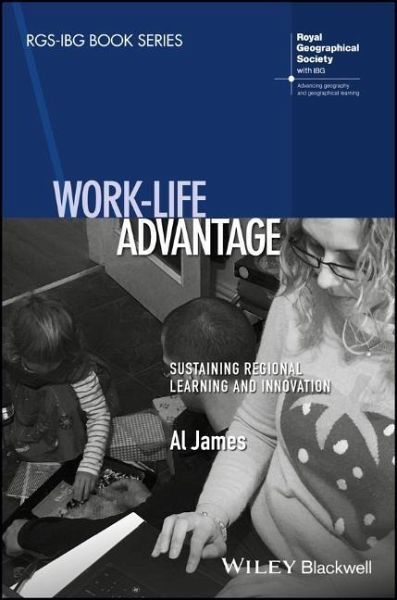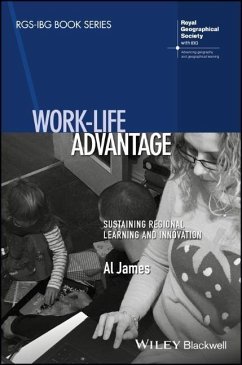
Work-Life Advantage
Sustaining Regional Learning and Innovation
Versandkostenfrei!
Versandfertig in über 4 Wochen
38,99 €
inkl. MwSt.
Weitere Ausgaben:

PAYBACK Punkte
19 °P sammeln!
Work-Life Advantage analyses how employer-provision of 'family-friendly' working arrangements - designed to help workers better reconcile work, home and family - can also enhance firms' capacities for learning and innovation, in pursuit of long-term competitive advantage and socially inclusive growth._ Brings together major debates in labour geography, feminist geography, and regional learning in novel ways, through a focus on the shifting boundaries between work, home, and family_ Addresses a major gap in the scholarly research surrounding the narrow 'business case' for work-life balance by d...
Work-Life Advantage analyses how employer-provision of 'family-friendly' working arrangements - designed to help workers better reconcile work, home and family - can also enhance firms' capacities for learning and innovation, in pursuit of long-term competitive advantage and socially inclusive growth.
_ Brings together major debates in labour geography, feminist geography, and regional learning in novel ways, through a focus on the shifting boundaries between work, home, and family
_ Addresses a major gap in the scholarly research surrounding the narrow 'business case' for work-life balance by developing a more socially progressive, workerist 'dual agenda'
_ Challenges and disrupts masculinist assumptions of the "ideal worker" and the associated labour market marginalization of workers with significant home and family commitments
_ Based on 10 years of research with over 300 IT workers and 150 IT firms in the UK and Ireland, with important insights for professional workers and knowledge-intensive companies around the world
_ Brings together major debates in labour geography, feminist geography, and regional learning in novel ways, through a focus on the shifting boundaries between work, home, and family
_ Addresses a major gap in the scholarly research surrounding the narrow 'business case' for work-life balance by developing a more socially progressive, workerist 'dual agenda'
_ Challenges and disrupts masculinist assumptions of the "ideal worker" and the associated labour market marginalization of workers with significant home and family commitments
_ Based on 10 years of research with over 300 IT workers and 150 IT firms in the UK and Ireland, with important insights for professional workers and knowledge-intensive companies around the world













